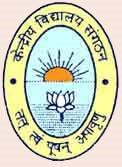
ESSAY-by JERRY PINTO
The Defanged Love Story
It may be a many-splendoured thing, but in Hindi cinema love is marred by a regressive streak.
There has been a regressive streak in Hindi commercial cinema. After all, it was made by men who worshipped their mothers, did not question the idea of patriotism, and were dreaming of a house out of Yash Chopra's Waqt. We forgave them because they were of their time and were surprised when they made films like Dhool ka Phool, a sympathetic look at illegitimacy; or Lamhe, which teetered on the edge of incest.
That was B.R. Chopra and Yash Chopra, elder and younger brother. The next generation, represented by Aditya Chopra, gave us Dilwale Dulhaniya Le Jaayenge. Now DDLJ, as it became popular in its phenomenally successful run, had all the makings of a Chopra film. It had a sumptuous visual feast as the leading lady, a likeable leading man, a mustard field and Switzerland. But here's what turns my stomach. In all mainstream cinema, we are expected to follow the hero's interests. We must empathise with him. He must stand for us, so that we can vicariously live out our fantasies—winning the pretty lady, beating up the goons, spritzing politicians with a machine gun—through him. Now, what fantasy is it where the hero says he won't whisk off his heroine and marry her without his father-in-law's permission? Where is the anarchic potential of love that was always celebrated in Hindi films? Where's Majnu's howling protest, Mahiwal's death wish or Ranjha's passion? This version of the hero would never marry a lower-caste girl or someone convicted of murder or a prostitute as the heroes of Sujata, Bandhini and Pakeezah did. This version of the hero is a toddler at heart, still seeking parental approval. In Trishul, Yash Chopra gave us the first hero who succeeded in his Oedipal quest. The Bachchan hero does not back down when his father's empire is in his grasp. He takes away everything. He does not even pay for his rebellion with his life like in other films (Shakti, for instance). That was in 1978.
In DDLJ, his son turned back the clock. Where the Bachchan figure in Trishul mocked love—"yeh bekaar, bedaam ki cheez hai" (It's a useless thing)—we were slightly shocked. When Aditya Chopra defanged its power, we hummed along.
When did we decide to make love another commodity? To circumscribe it in the family, in society? To package it with the right background and designer clothes? It didn't stop at ddlj, it couldn't. The year before, Hum Aapke Hain Koun? had established that Hindi films did not need villains and that if you did not have a Pomeranian of extracanine intelligence, you might as well marry your sister's widower. Take a big hit at random. Mohabbattein? The girl kills herself due to her father's intransigence but the father is a figure of authority against which Shah Rukh Khan must thump his head endlessly to get him to allow some poppets and moppets to have a prom night. Hum Dil De Chuke Sanam? The boy loves the girl but gives her up as guru dakshina to her father. Her father marries her to another man. When offered her freedom, she sticks by her husband.
Last month, Imtiaz Ali's Socha Na Tha reminded me that you don't have to be a greybeard to produce a regressive film. The hero loves a Catholic girl. Of course, her parents live in a house with a hundred candles burning under a picture of the Sacred Heart. Sure, her father tanks him up on alcohol. Sure, he wears suspenders and is a Portuguese Raj relic. But that's not depressing even if it does play to stereotypes. The depressing bit is: the hero doesn't really love her, see? He falls in love with the girl his parents chose. All the early rhetoric about how demeaning arranged marriage is, how dim-witted it is to assume that two people can meet and decide whether to marry or not is dismissed in the way it all works out. Actually, your parents know best.
Okay, what's going on?
This is a bunch of people who have had the best of both worlds. Most of these guys would not know a struggle if it was marked with a big red X. Their dynastic lineages assure them of the best of everything, the biggest stars, the finest distribution, the best marketing, the works. Their lives have been cosmopolitan, free-wheeling, unfettered by the constraints of tradition with "the winds of the world blow through the doors and windows" of their houses but it has not changed them.
But what can one expect of the rich? If you think about it, the rich have become rich on the way things are. Why would they want to change things? Why would they want to do anything except keep everyone in stasis? Why not make big family dramas in which everyone is gorgeous and the mustard fields are in bloom and Lata didi still sings in the lower reaches of her geriatric voice?
Why take risks? Which is why Hindi cinema will have to look beyond these midgets who walk in the footsteps of giants.
Which is why I will still go and see a hatke film by a new director—unless it is Nagesh Kukunoor who has never made a film, only some amateur representations of cinema—because that's where I'm going to find the new voices and the rewriting of cinema. Which is why it takes an Onir (My Brother Nikhil) and Anurag Kashyap (Paanch and Black Friday) and a Ruchi Narain (Kal-Yesterday and Tomorrow) and a Sanjay Jha (Pran Jaaye Par Shaan Na Jaaye) and Shashanka Ghosh (Waisa Bhi Hota Hai Part II) and Tigmanshu Dhulia (Haasil) or even that old warhorse Sudhir Mishra (Hazaaron Khwaahishein Aisi) to make me want to go back to a cinema.
The rest of the big names, I'll see on DVD, thank you. And keep my finger on the fast forward button.
http://www.outlookindia.com/full.asp?fodname=20050530&fname=EJerry+Pinto+%28F%29&sid=1















0 Comments:
Post a Comment
<< Home